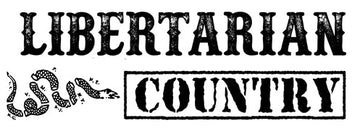The U.S. Constitution, since its inception in 1789, is one of the most important documents written since Magna Carta.
The Constitution is the 'supreme law' of the land; essentially a document designed to govern the government and guarantee basic freedoms.
The First Amendment to the Constitution, which guarantees the freedom of speech, has been routinely questioned as well as threatened since its ratification in 1791.
The newest threat to the First Amendment is the implementation of 'speech code' in colleges and universities that aim to protect 'subjugated' or minority groups from racially insensitive, 'homophobic' or so called 'hate speech'.
This type of social engineering is the preamble to the destruction of the First Amendment, as it lays down the foundation for a moral opposition, which would enable the government to potentially enact a repeal.
As pointed out by the American Civil Liberties Union, while this may be well-intended, it's the "wrong response".
The First Amendment guarantees the freedom of speech no matter how offensive it may be perceived by an individual. Now, this doesn't give citizens carte blanche to commit slander or libel against others, but it does protect unpopular or 'offensive' ideas.
It's important to understand the difference. Writing a scathing diatribe against feminism is protected speech, whereas blatantly calling a woman a 'slut' for adhering to feminist ideas may not be.
Many advocates of First Amendment reform want to exclude even the freedom to write, speak or publish certain opinions that may contravene a perceived level of what is 'socially ethical.'
In other words, First Amendment reformists want to cancel your freedom to hold objectionable opinions that may loosely be qualified as 'hate speech'.
There is a fundamental flaw in this ideology and that is that "hate speech" is not objectively quantifiable, it is subjective.
What may be considered hateful to one group may not be considered as such to another group. So how do we make the determination of what qualifies as unprotected 'hate speech'?
Ultimately what it boils down to is a push by one moral segment to limit the freedom of a different moral perspective, and that is a direct contradiction to the First Amendment of the U.S. Constitution.
Why Freedom of Speech is Necessary for Progress in a Civilized Society
In 1600 AD Giordano Bruno was executed by the Catholic Church for voicing opinions that were considered heresy. His written collections were then placed in the Librorum Prohibitorum, an index of banned books by the Catholic Church.
Heresy and 'Hate speech' are eerily similar concepts. What was once considered 'heresy' by the Church, would have likely been considered 'Hate speech' as well.
The righteous moral majority in 16th Century Italy was the Catholic Church, and speaking out against them was a dangerous endeavor. This stifling of free speech may have been "morally" conducted at the time, but in actuality it inhibited the forward momentum of scientific exploration and intellectual philosophy.
Personally, my views are that racism, bigotry and homophobia have no redeeming qualities for the advancement of scientific exploration, or the advancement of civilization in any way.
However, to restrict individuals from the freedom to present their ideologies, no matter how offensive and useless we may think they are, is synonymous with how the Catholic Church forbade scientific freethinking, in that it lends to Government suppression which hinders advancement (as it did in the Dark Ages).
Scientific understanding, real progress and true advancement requires an open podium for the free exchange of ideas.
It can be a scary concept to some individuals, but we cannot rid or reform the very document which enables us the freedom to make such progress. The preservation of the First Amendment and the Freedom of Speech must rigorously be upheld in order to maintain a free and civilized society.
There will always be something that you don't want to hear, something that will infuriate you and make you sick, but you have no right NOT to be offended.
If you summoned the Government to rid a certain kind of message that was offensive to you, you may take solace in your victory; your feelings are now safe from harm. But if the Government now has this ability to restrict speech, what happens when they want to restrict something that You want to profess? Speech that you value?
Then perhaps you'll start to understand that Freedom of Speech is more important than your feelings.




